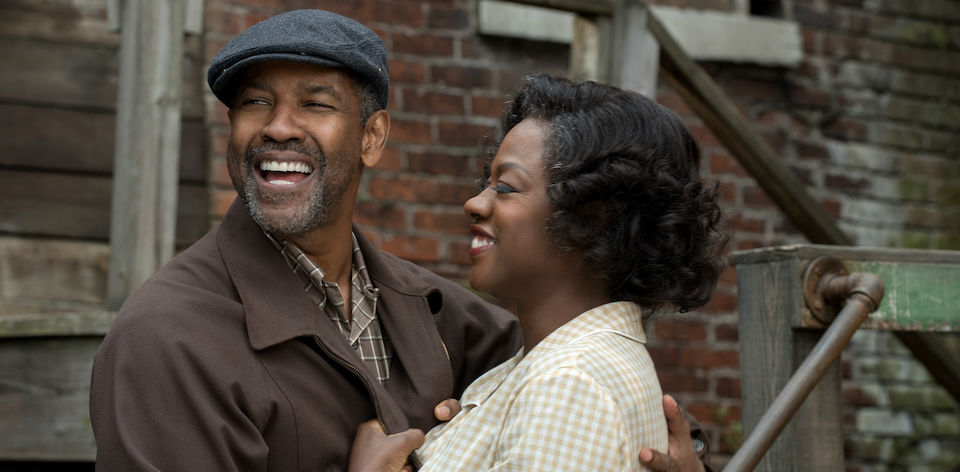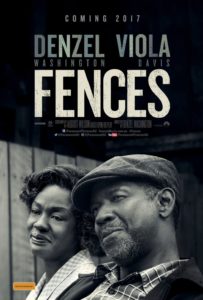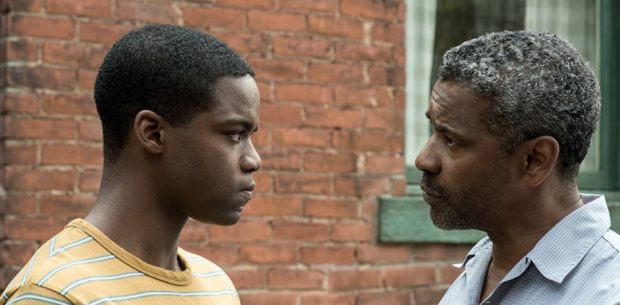Based on the 1983 Pulitzer Prize winning play by August Wilson, FENCES is a continuation of writer’s tragicomic examination of the African-American experience across the decades. This long-gestating adaptation comes from a script Wilson penned prior to his death in 2005, with the author always insisting that directorial job “requires someone who shares the specifics of the culture of black Americans.” Denzel Washington’s third feature as director sees him step up to the plate, and while he’s covering all the bases with some heavy hitters in the acting department, his subservience to the source material keeps him from batting a thousand.
Part of Wilson’s “Pittsburgh Cycle,” the scene is the 1950s, focusing on waste collector Troy Maxson (Denzel Washington), an ex-con and once promising baseball player, and his wife Rose (Viola Davis). Embittered about never making into the major leagues, Troy takes it out on his son Cory (Jovan Adepo), a skilled football player whose career is held back by his father’s refusal to support it. Totems of Troy’s past exist in the form of estranged son Lyons (Russell Hornsby), a child from a previous marriage; his former cellmate Bono (Stephen Henderson) and his younger brother Gabriel (Mykelti Williamson), psychologically damaged from injuries sustained in the Second World War.
Right off the bat, Washington establishes the stage origins of the story with an extended conversation between himself, Henderson and Davis. Through a series of jarring transitions that represent scene changes, FENCES never fully escapes this framework, with Washington’s flat direction rarely escaping the confines of the back porch or the streets that surround his house. In some ways this is appropriate, a miniature kingdom for Troy that is also never really his, with the purchase only made possible by his brother’s compensation money.
What this approach does achieve is a character showcase, and this is where the film’s strengths lie. Washington and Davis reprise their Tony Award winning roles from the 2010 season at New York’s Cort Theatre, and both are powerhouses. Davis in particular has some phenomenally emotional turns, especially in the anguished third act, where audience allegiances will be tested and the actors get to stretch their wings. So while FENCES may not be the most cinematic film in this year’s award contenders, it captures these terrific performances in a bottle for all time.
[stextbox id=”grey” bgcolor=”F2F2F2″ mleft=”5″ mright=”5″ image=”null”]2016 | US | DIR: Denzel Washington | WRITER: August Wilson | CAST: Denzel Washington, Viola Davis, Stephen Henderson, Jovan Adepo, Russell Hornsby, Mykelti Williamson, Saniyya Sidney | DISTRIBUTOR: Paramount Pictures Australia | RUNNING TIME: 139 minutes | RELEASE DATE: 9 February 2017 (AUS) [/stextbox]






